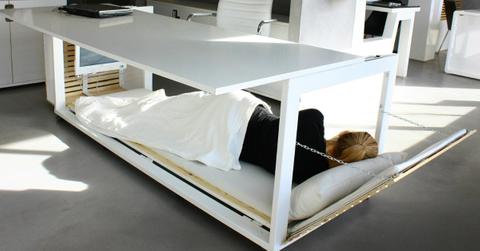
This 'nap desk' is the perfect solution for boosting productivity at work
By Mustafa GatollariJuly 7 2020, Updated 10:27 a.m. ET
Greek designer Nancy Leivaditou's of an office desk with a twist is getting head-nods from nap appreciators everywhere.
If you ask any working professional if they're getting enough sleep you'll probably get a variety of response with most of them not being positive.
Whether it's hysterical laughter, a telling sigh, or a gloomy head shake, the fact is most of us aren't getting our recommended 8 hours a night.
So we turn to caffeine in its various forms or maybe if you're living inside The Wolf of Wall Street you'll get yourself some Bolivian Marching Powder to solider on throughout the day.
Now both of these "solutions" aren't really solving the problem at all - they're just barely compensating for the fact that your body direly needs some sleep.
So when you're going about your day, doing a whole bunch of stuff and hustling hard, if you feel yourself getting a little sleepy or tired, you should probably give yourself an hour or so to actually catch up on some rest.
But what do you do when you're at work? How do you manage to stay so productive and on the ball? It's not like you can quickly catch up on some Z's in the middle of your office.
Or can you?
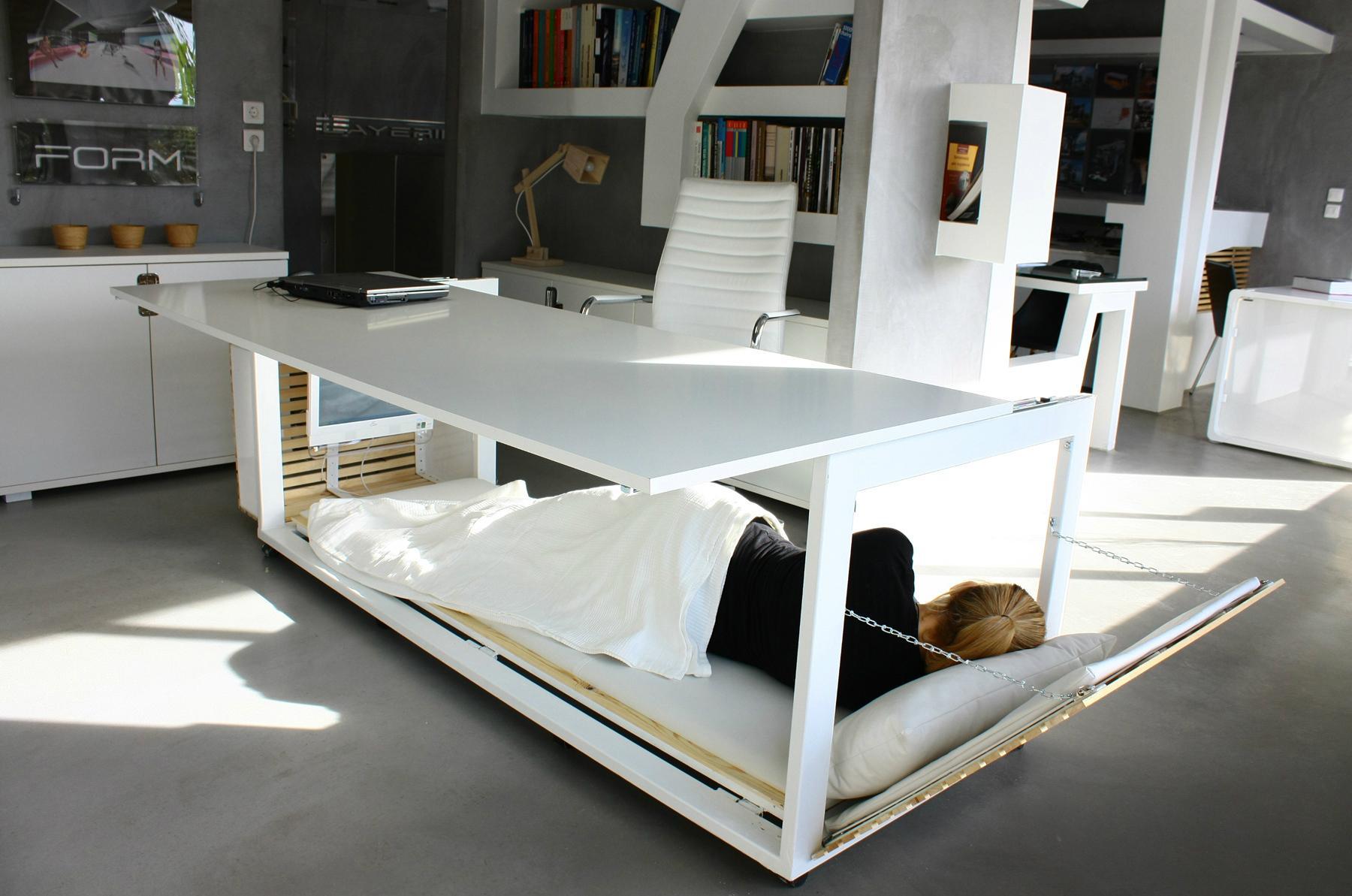
A study conducted in 2015 found that there was a link between naps and boosting immunity. Not only could sleep deprivation adversely affect the way your brain functions, your hormones, and your metabolism, but it could also result in you getting sicker more frequently.
Which lead sleep researcher Brice Faraut to test a hypothesis: can power naps help combat these harmful symptoms?
After testing two different groups that were sleep-deprived, Faraut's findings revealed that the men who snuck in two 30 minute naps during the day were much healthier as a result and be a "powerful countermeasure to sleep debt" as Faraut put it.
The findings are surprising to many sleep researchers, like Michael Gradner, who says that the newer studies contradicted existing literature on the topic.
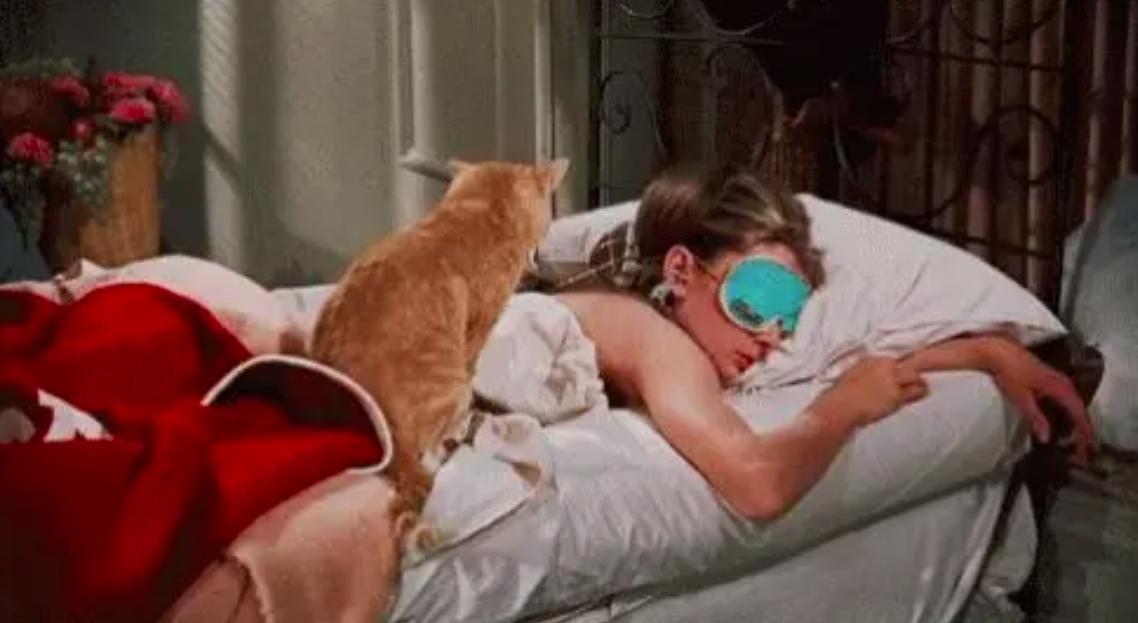
In an email with Reuters health, Gradner said:
"But these are complicated processes, and studies like these, that examine what happens during partial recovery, (help) us understand all of the ways that sleep is important for health and functioning."
Gardner said that there are different kinds of naps that people can take and depending on the circumstances, they may not help you with your overall health:
"First are naps that you take because you are so exhausted that you cannot stay awake. A nap in this case may help a little, but being that exhausted is a sign of insufficient sleep or a sleep disorder and it’s unlikely that the nap can completely fix the problem."
Grandner went on to say that if you're having difficulty staying well rested, then that could be a deeper problem that no amount of power naps could help alleviate:
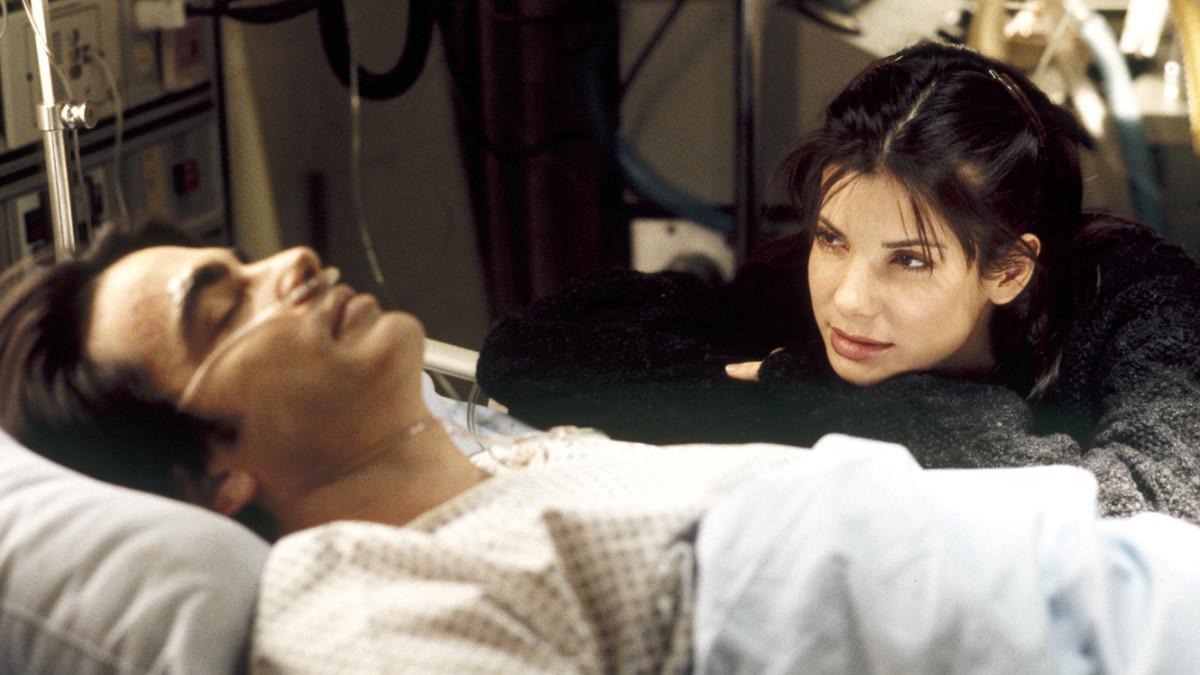
"You might have a sleep disorder like sleep apnea (which is a very common cause of sleepiness) or you may be sleep deprived. which has been shown to be an important risk factor for weight gain and obesity, heart disease, poor performance, and many other outcomes."
So when are you taking a "good nap" versus one that won't really affect your state of mind?
When it's one by choice, according to Grandner:
"Rather than a nap by necessity, this is a nap by choice. These naps, since they are not in the context of exhaustion, have the opportunity of boosting your performance (rather than simply making up for lost sleep)."
I'm not saying he's wrong, but I will say that there have been plenty of times in the past where I used naps as a means of escaping and even shirking my own responsibilities.
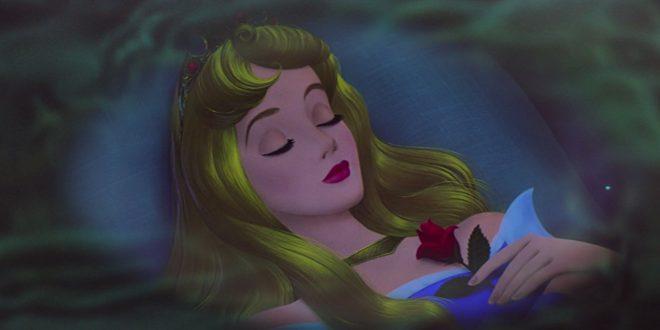
Also I can't stand it whenever I intend to just take an hour nap and then I wake up and it's 4am and I'm still fully clothed wondering just what the heck happened with drool all dried up on my face. Guess I really needed that sleep then.
